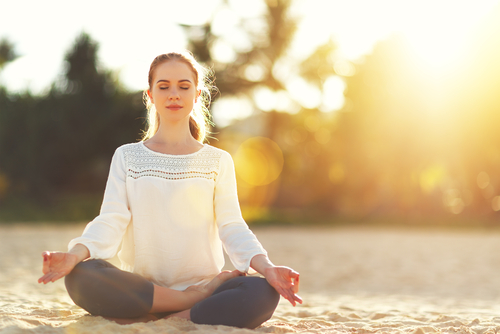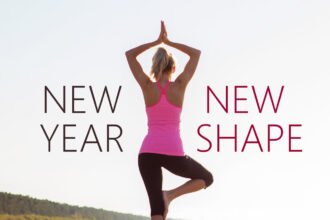Meditation is a buzzword that seems to be everywhere these days. Have anxiety? Meditate. Trouble sleeping? Meditate. But for many people, meditation is still a foreign and faraway concept that can be difficult to put into practice.
Meditation is a great way to live a more mindful and relaxed life, and has proven physical and mental health benefits. But it doesn’t need to be complicated.
Here are five meditation techniques for people who are just starting their mindfulness journeys.
#1 Practice Diaphragmatic Breathing
Turn on any meditation video, and what’s the first thing you hear? Take a deep breath. You huff and you puff, but you just end up dizzy and tired. That’s because effective meditation involves a special kind of breathing called diaphragmatic breathing.
Your diaphragm is a dome-shaped organ nestled directly under your heart. Engaging your diaphragm when you breathe increases oxygen flow and relaxes the body.
Keep these tips in mind for your diaphragmatic breathing practice:
- Getting the hang of diaphragmatic breathing takes practice, so don’t get discouraged if you don’t ace it immediately.
- Try lying on your back with a plump pillow under your legs for support. Place your hands on your stomach below your heart area, so you can feel the movement of your breath as you practice.
- If you breathe through your diaphragm successfully, you should feel your stomach expanding on the inhale and deflating on the exhale. Push your stomach out firmly when inhaling.
#2 Make It Your Own
Meditating is all about connecting with yourself and learning exactly how mindfulness works for you. This means you should change up your routine depending on what makes you most comfortable, especially if you’re just starting to learn the practice.
- Experiment with your environment – If sitting cross-legged isn’t for you, move around. Try standing up, folding your legs, or sitting on a chair or stool.
- Go online – Apps like Headspace or Calm make meditation accessible and easy, even if you’re on the go. These apps have tutorials and meditation packages for beginners and experts alike.
- Enhance the experience – Some people like to elevate their meditation experience with certain products. Applying essential oils or CBDfx tinctures before you meditate can help you relax even further, or take your meditation session to a whole different level.
#3 Set Achievable Goals
If you feel pressured or stressed at the prospect of meditating, you’re not doing it right. Here are some ways to set a reasonable timeline for yourself:
- Maybe meditating first thing in the morning doesn’t fit your schedule. In which case, try meditating before bed instead.
- Try meditating three times a week first before graduating to a daily routine (if that’s your desired goal).
- If you’re using an app, try to keep up your desired meditation streak, whether that’s weekly or daily.
- Most importantly, don’t beat yourself up if you forget or don’t have time.
#4 Practice Mindfulness in All Areas of Your Life
Mindfulness is the greater principle that makes meditation effective. Practicing mindfulness means being present, grounded, and aware of your body at all times. This allows your body and mind to converge and develop a better way to deal with stress and adversity.
Try checking in with yourself while you’re doing a simple task like running errands or taking a walk. Eating is another good way to engage in mindfulness. For instance, when you eat a bite of food, take a moment to notice and observe the texture, flavor, and feeling.
It’s easy to be controlled by one’s own thoughts or get carried away in the hustle and bustle of modern life. Try to take some time to practice mindfulness techniques in your daily life and watch your meditation sessions become more peaceful and effective.
#5 Form Mindful Habits
The easiest way to become an expert meditator is to make it a part of your daily routine.
Here are some ways to make meditation a habit:
- If you find that you meditate best before bed, always do it right before you go to sleep. Similarly, if morning is your time, make it a routine to meditate while you put on a pot of coffee, or wait for the water from the shower to heat up.
- Carve out a nook in your room to meditate in. Spruce it up with comfy pillows and blankets, so you know when you enter that space, you’re in the mindfulness zone.
Go from Meditation Beginner to Expert
At the end of the day, meditation is what you make of it. It can increase your focus or help you unwind. It can boost your empathy, gratefulness, happiness, and more, but only if you dedicate time and effort to your mindfulness journey!
Use these five tips to gradually make meditation a part of your daily routine. Soon, you’ll be wondering how you ever lived without it.









